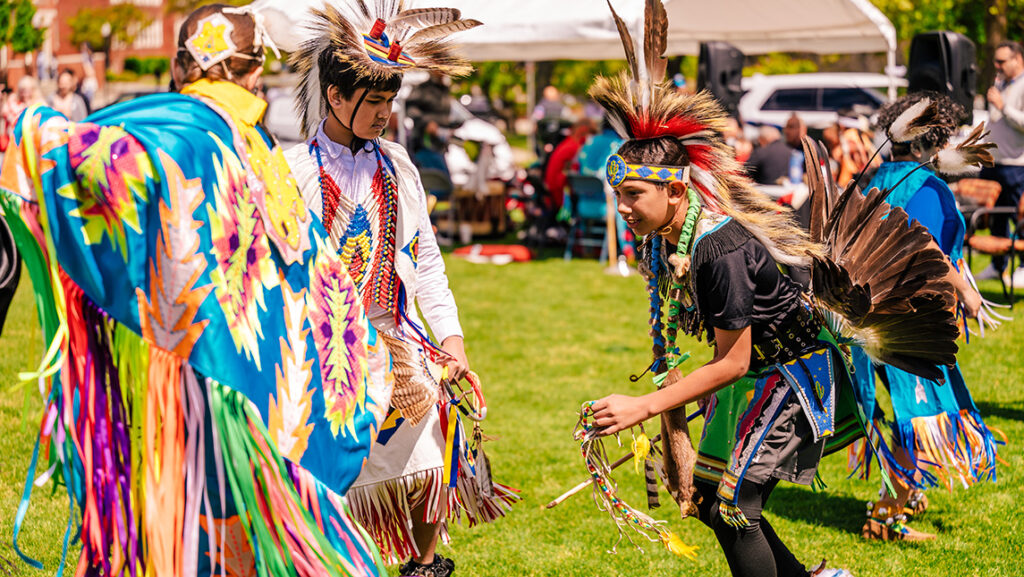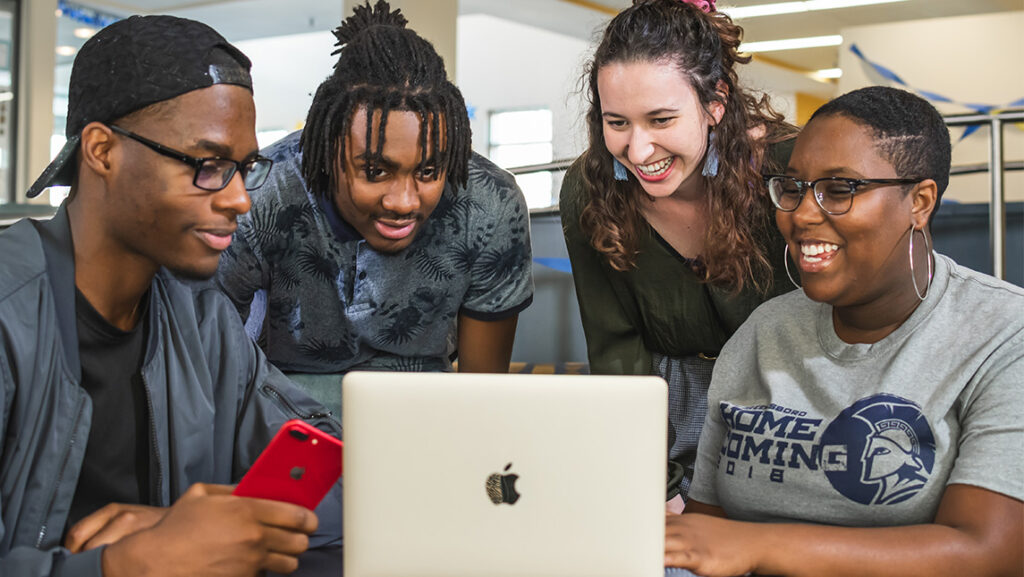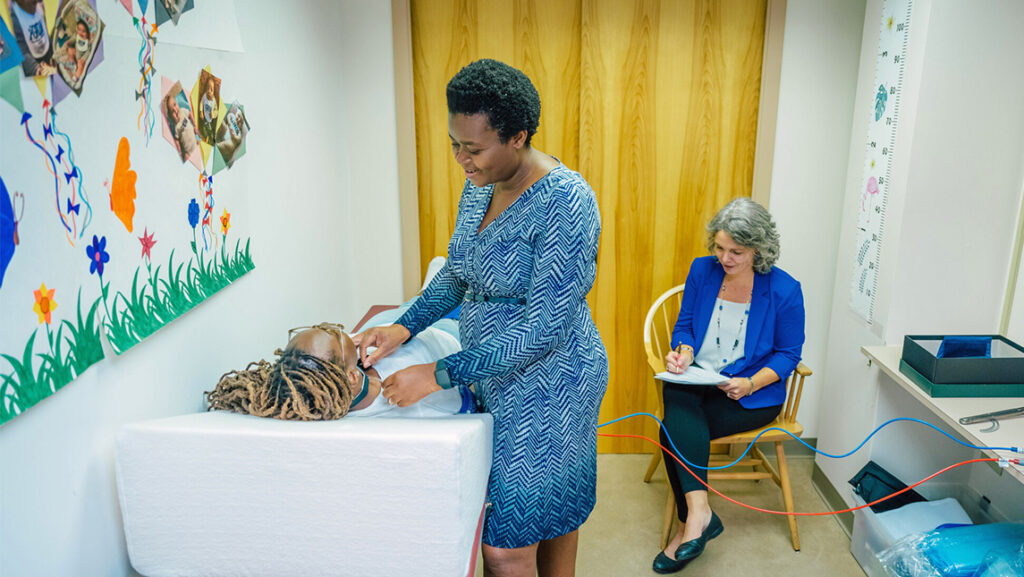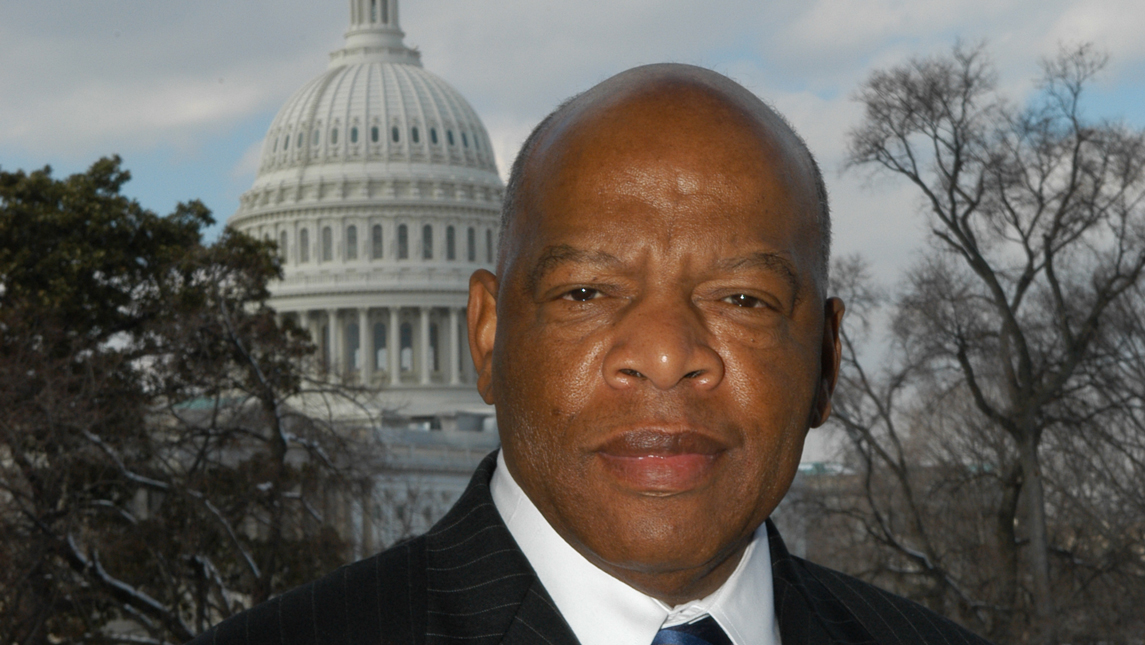
Rep. John Lewis, a lion of the Black Civil Rights Movement, died last Friday.
John Lewis spoke at UNC Greensboro in 1988 on the occasion of UNCG’s Second Annual Martin Luther King, Jr. Celebration.
The Martin Luther King Jr. Day holiday was first observed nationally in January of 1986. The national holiday had been a contentious political issue in North Carolina for years, with this state’s two senators opposing the creation of the national holiday. The bill ultimately was passed by Congress and signed into law by President Reagan. The first MLK Celebration was held at UNC Greensboro in January 1987, with activist and comedian Dick Gregory as special speaker.
When John Lewis spoke the second year, the holiday was still a contentious issue in many areas of the state.
“The King holiday is not a Black holiday, but an American holiday,” Lewis told the UNCG audience. “It should be celebrated by all Americans, and by all people who believe in justice.”
Lewis spoke about Dr. Martin Luther King’s character. “He was able to use the emotionalism of the Black Church as a vehicle, a tool. … He had the power and moral authority to bring more people, Black and White, into the movement. He began what I like to call a non-violent revolution, a revolution of values.”
Student newspaper reporter Clinton Hughes described Lewis as “a legend among civil rights circles.”
The front page Carolinian feature showed no photo, but Hughes painted the scene. “A soft-spoken, short and balding man, he showed no physical or emotional scars of the countless beatings he had incurred during his more than forty jailings of the early civil rights struggles of the 1960s. But during his speech, he drew on his own experiences to describe the effect that King has had on both himself and the nation.”
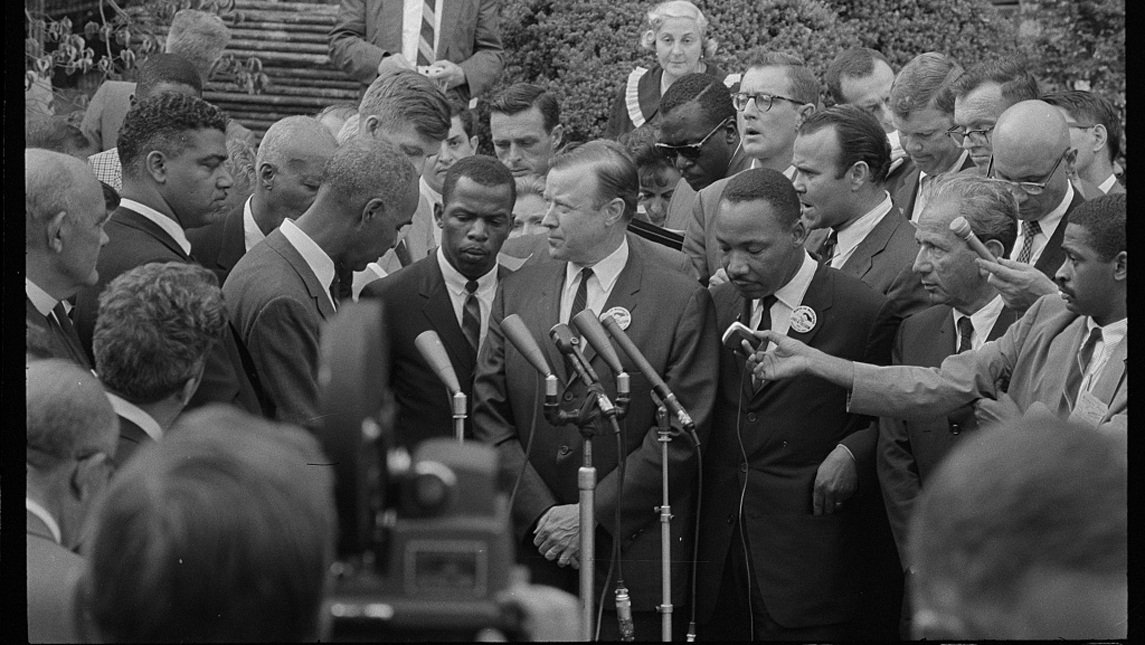
Lewis and King crossed paths often in the 1960s. Lewis was the youngest to have spoken at the 1963 March on Washington, an event best remembered for King’s “I Have a Dream” speech later in the afternoon. He organized the 1964 Mississippi Freedom Summer, registering voters who had been shut out. He helped lead the March at Selma, and news film of him and other Black marchers being pushed back, beaten, and tear gassed by law enforcement near the Edmund Pettus Bridge shocked many throughout America. It is credited with spurring passage of the 1965 Voting Rights Act, which aimed to prevent racial discrimination in voting.
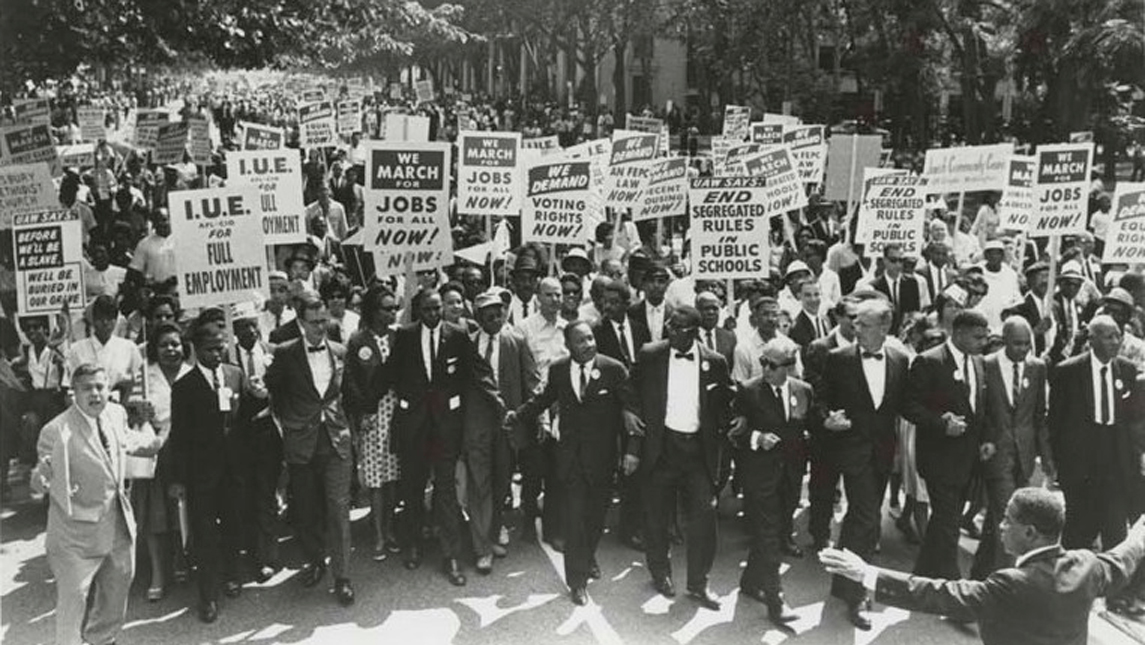
The week Lewis spoke at UNCG, other events were held on campus. Jim Clotfelter, then professor of political science and later vice chancellor for information technology services, gave a presentation on King and the civil rights movement. Clotfelter had covered the civil rights movement in the South for Time magazine and newspapers. When asked this weekend about Lewis and his place in history, Clotfelter recalled the last time as a reporter that he saw him: “He was being carried out of a segregated Atlanta restaurant, site of a sit-in. He was one of the most fearless civil rights leaders – and no one did more to make himself the fearless leader he became.”
Also a panel discussion was led by history professor Allen Trelease, community leader Angeline Smith, Greensboro NAACP president Melvin “Skip” Alston, and Ralph Ross, assistant dean of students at North Carolina A&T State, the student newspaper reported.
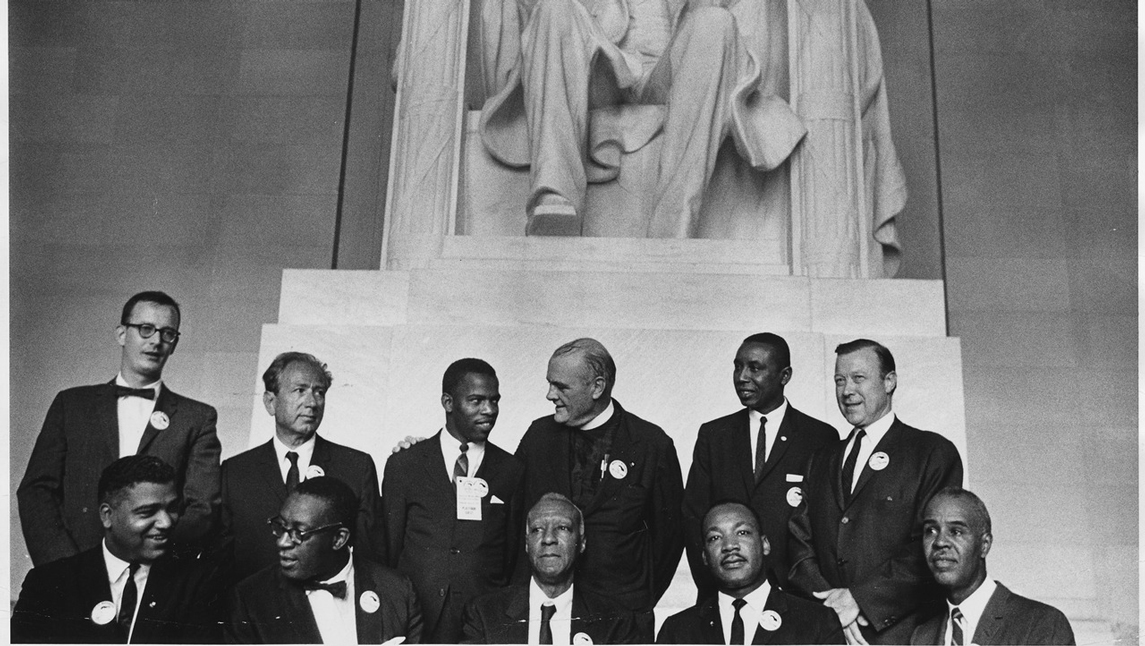
Lewis’ penultimate visit to Greensboro came in May of 2015, when he was the speaker for the NC A&T commencement. He afterward visited the International Civil Rights Center and Museum in the former Woolworth Building. In 2018 he made a final visit to the city, for a speech at Bennett College to encourage students to register and vote. He reminded them how much he and many others had sacrificed and endured for the ability to vote.
His first time in Greensboro – as a freedom rider – was remarkable as well.
He was one of the 13 members of the first interstate Freedom Ride, in 1961, from the nation’s capital to the Deep South, challenging the enforcement of interstate transportation laws. The ride cast a light nationally on still-segregated facilities in many parts of the South and on brutal racism. Lewis was beaten in South Carolina, in a Whites-only waiting area, and beaten again at the Tennessee-Alabama border. One bus was burned in Alabama, its passengers beaten after they barely escaped the flames. Another bus was boarded by supremacists, the freedom riders beaten in Alabama. Arriving in Birmingham, the riders suffered another beating.
The riders did not fight back. Non-violence was their weapon, as they followed the strategy of Gandhi and King. Just as the Woolworth protesters in 1960s practiced non-violence, the 1963 marchers and picketers on Greensboro’s Elm Street practiced non-violence as they filled the jails, and the spring 1963 picketing by Woman’s College (UNCG) students on Tate Street saw no fighting back, despite the women being spat upon.
The Greensboro connection? The 13 riders, including a young John Lewis, had a stopover meeting at Shiloh Baptist as they passed through Greensboro. The Rev. Otis Hairston recalled in a 1991 retrospective News & Record article by Jim Schlosser that there were several bomb threats called in, but they just continued their meeting.
No one budged.
Lewis served in Congress beginning in 1987, representing his Georgia district 17 straight terms. Details about the memorial service and burial are forthcoming.
Story by Mike Harris, UNCG Magazine
Photos courtesy of Library of Congress, American Jewish Historical Society, and U.S. Information Agency Press and Publications Service
Text updated to include Lewis’ 2018 visit to Bennett College
